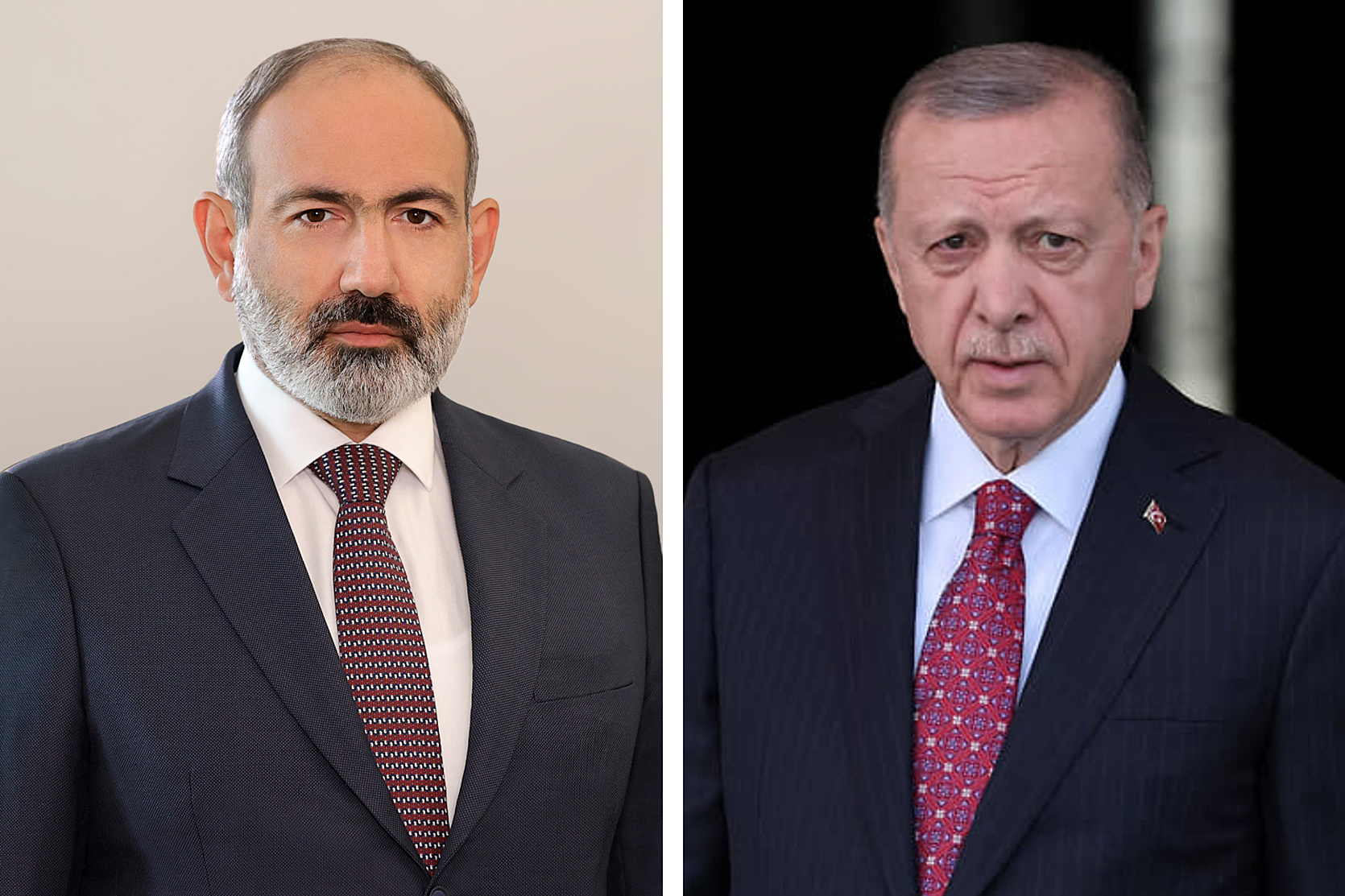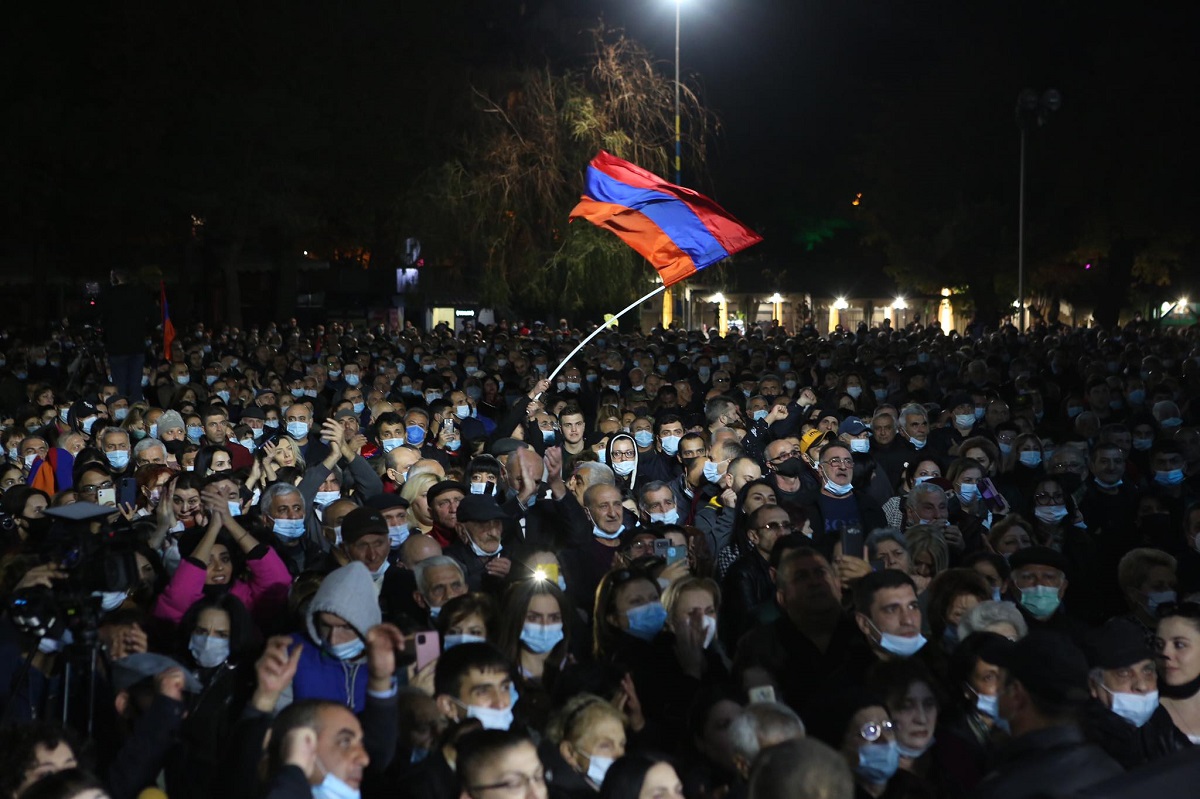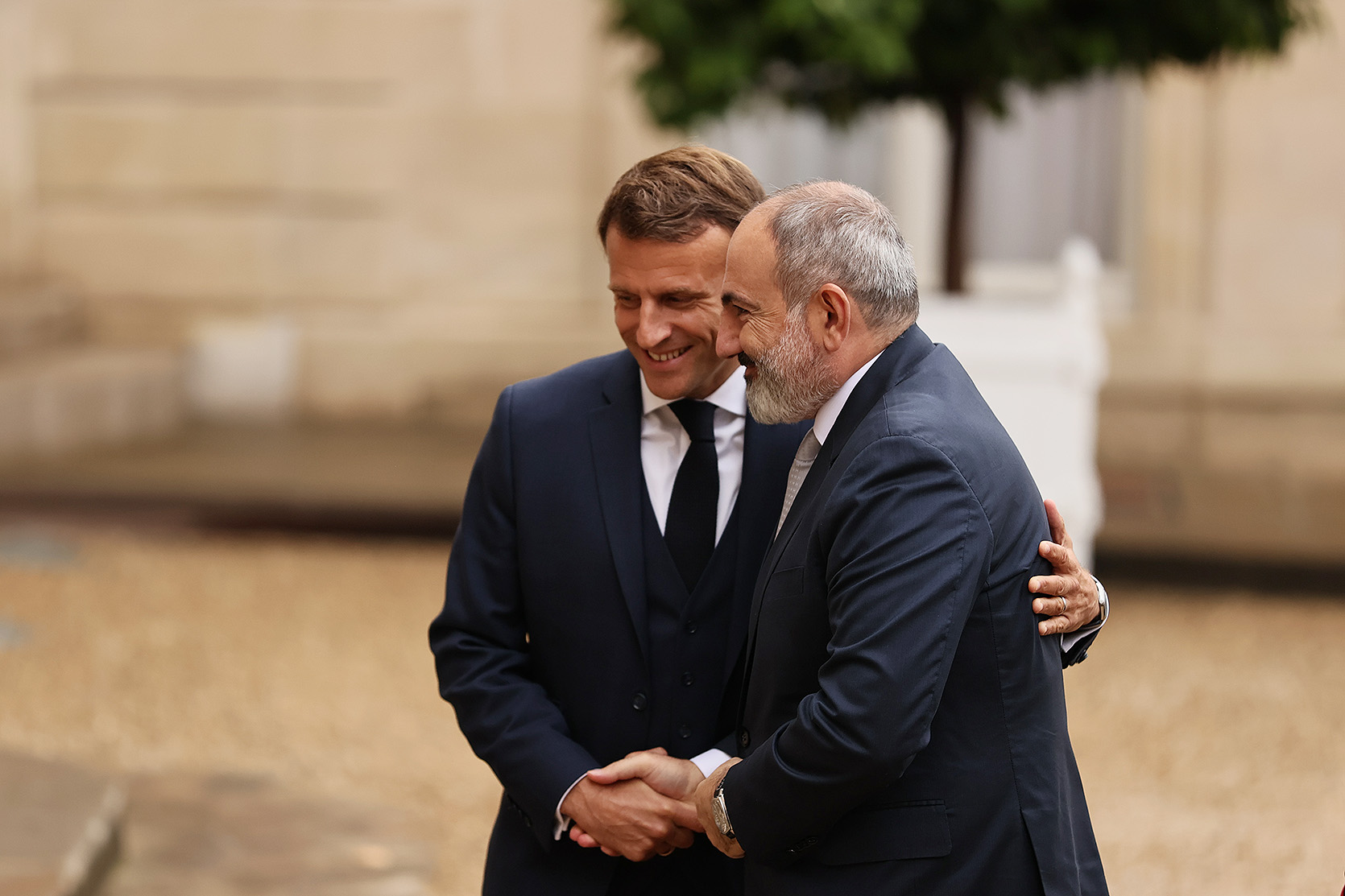“Turkey is not particularly interested”: On possible Pashinyan-Erdogan negotiations
Pashinyan-Erdogan talks expected
The September war on the Armenian-Azerbaijani border again raised the question in Armenian society whether the hopes and intentions of Armenian Prime Minister Nikol Pashinyan of establishing peace in the region are not illusory. Experts say that “Azerbaijan’s aggression has further complicated the solution of any issues through negotiations.” Although even under these conditions, foreign mediators organize meetings and negotiations between the conflicting parties. The latter took place in the United States with the participation of the Secretary of the Security Council of Armenia and an adviser to the President of Azerbaijan.
Another important meeting in early October in Prague has been announced. On the sidelines of the summit of the European Political Community, the Armenian Prime Minister is expected to meet with the President of Turkey, Azerbaijan’s main ally. In Armenia, they say that Ilham Aliyev will also be invisibly involved in these negotiations, since the head of Turkey openly announced the synchronization of his steps with the President of Azerbaijan.
Armenian experts below consider all bilateral negotiations important, though they doubt their effectiveness, and predict a possible agenda of Pashinyan-Erdogan talks expected in the near future.
- Geopolitical project: How Armenia lost the war and wound up between world powers
- “Armenia offers Azerbaijan three roads through its territory” – details from an expert
- Regional processes without taking into account Armenian interests? Opinion
Suren Surenyants, political scientist
Armenia must go with an agenda
“Pashinyan and Erdogan can meet in Prague on the sidelines of the European Political Community summit. Their meeting could have taken place in New York during the last session of the UN General Assembly, but did not take place due to their busy schedules.
There are so many topics for conversation that it is difficult to say what will be given priority. Nevertheless, I suppose that the main topic for discussion at the meeting will be Armenian-Turkish relations, taking into account the interests of Azerbaijan. Ankara considers them parallel processes and constantly links them, which is justified in the case of the allies.
Yerevan must go to this meeting, but with its own very specific agenda. This meeting can minimize the risks of a possible new war.
Armenia should strive to sign agreements with Turkey and Azerbaijan – with minimal risks for itself. It is obvious that we are the losing side and we need this more than anything. And institutional peace is possible only after the signing of agreements.”
A lesser evil
“Of course, Armenia should have red lines. This is the territorial integrity of the country and its sovereignty. On all other issues we need to show great flexibility – in view of the fact that the army has been weakened, defense capability is low, and the diplomatic balance is not in our favor.
Armenia does not have an ally such as Turkey is for Azerbaijan. So, you need to choose the lesser of the evils.
There is also a stumbling block
“Turkey’s only real precondition for the normalization of Armenian-Turkish relations, both in the past before the war of 2020, and now, is the issue of Artsakh, the issue of the resolution of Armenian-Azerbaijani relations. Moreover, the formal side of this issue interests the Turks more than the content.
And any variant of resolving issues that suits Baku will also suit Ankara. This imperative comes from the Azerbaijani-Turkish allied relations.
There can be no other real preconditions.”
Armenia will lose in sovereignty
“Except for Baku and Ankara, none of the players involved in the negotiations puts before Armenia the issue of providing an extraterritorial corridor through its territory. This demand is unrealizable unless Baku decides to solve it through war. It is impossible to achieve this in a negotiating format, since this would mean a violation of the territorial integrity and sovereignty of Armenia.
I believe the corridor connecting Azerbaijan with its exclave Nakhichevan will not be extraterritorial, but functional. That is, there will be no changes to the borders, but Azerbaijan will be provided with a road that will be controlled by the Russian FSB – as stated in the ninth paragraph of the November 2020 tripartite statement, which ceased hostilities in Karabakh.
Armenia will have control over the road, but very limited. I think Armenian Prime Minister Nikol Pashinyan signed this. And it is unlikely that he will refuse it.
Azerbaijan is simply putting forward a maximalist agenda, but ultimately the issue will be resolved through a tripartite statement. In this case Armenia will not have territorial losses, but will lose in sovereignty.
And that’s the lesser of the evils. If a peace treaty is not signed, war could break out in Syunik [Armenia’s southern border with Azerbaijan]. Armenia does not have enough strength, defense capability to abandon this point of the tripartite statement.”
Pashinyan-Erdogan talks expected
Georgy Mirzabekyan, Turkologist
All decisions – taking into account the position of Azerbaijan
“The Pashinyan-Erdogan meeting is, of course, important from the point of view of the dialogue between the heads of the two countries, but it is not necessary to expect breakthroughs and pin great hopes on it, given Turkey’s tough position, which supports Azerbaijan’s demands of Armenia.
Turkey’s latest accusations against Armenia, which have nothing to do with reality, that it allegedly provoked Azerbaijani military operations on the border, is a confirmation of this. And this is not an isolated case, but a political approach. Therefore, Erdogan said on the sidelines of the UN General Assembly that all steps taken by Turkey in the region should be coordinated with Aliyev.”
Unacceptable requirements for Armenia
“If the meeting does take place, Turkey will put the well-known “peace treaty” and the issue of a “corridor” through Armenia on the negotiating table. This means the unblocking of roads with the demand for a “corridor”, that is, the loss of Armenian sovereignty over this territory.
Yerevan officially opposes an extraterritorial corridor through its territory, although it is ready to provide a land road linking Azerbaijan with Nakhichevan.
Armenia also has red lines regarding the peace treaty. Azerbaijan presented five basic principles for the signing of a peace treaty. Armenia, in turn, put forward its six on providing mechanisms and guarantees for the security and rights of the Armenians of Nagorno-Karabakh. And if the Turkish-Azerbaijani tandem continues to ignore the proposals of Armenia, naturally, the disagreement will deepen.
At the same time, since it is important for Turkey to satisfy Baku’s demands for the signing of a peace treaty with the recognition of NK as part of it, that is, closure of the Artsakh issue, and for the provision of a “corridor”, the effectiveness of all possible meetings is automatically called into question.
In connection with the latest military aggression of Azerbaijan on the Armenian border, uncertainty arose about the meeting of special representatives on the normalization of relations between Armenia and Turkey, which was announced for September.
In general, the topic of purely Armenian-Turkish bilateral relations is secondary; other issues are important for Turkey.”
Armenian army as a deterrent
“Azerbaijan raises the bar of its demands every time, exerting forceful military pressure.
Today it is customary to say that the Armenian army has few resources and its defense capability is insufficient. But on September 13-14 we saw tough resistance to Azerbaijani aggression, we saw what serious losses it inflicted on the enemy. It should be clearly stated here that it was through the efforts of the Armenian army and under the pressure of American diplomacy on Baku that another Azerbaijani aggression was halted through Turkey.
But here, too, Turkey is trying to give its Western partners the impression that it is in favor of a dialogue with Armenia. A possible meeting in Prague, most likely, is planned precisely for this purpose. Turkey needs to be shown that it is constructive. But if this meeting were important for Turkey, Erdogan would make efforts to have it take place in New York, where both Armenian Prime Minister Nikol Pashinyan and Foreign Minister Ararat Mirzoyan were.
And the statement about the “busy schedule” only says that Turkey is not particularly interested in this meeting. And if it takes place, Erdogan will once again present exclusively his position and make demands.”
Pashinyan-Erdogan talks expected






















